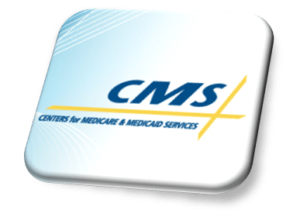 The Physicians Foundation is a not-for-profit organization that researches a range of timely issues impacting doctors. In that sense it serves as a type of collective voice for physicians.
The Physicians Foundation is a not-for-profit organization that researches a range of timely issues impacting doctors. In that sense it serves as a type of collective voice for physicians.
Every other year it sends a comprehensive survey “to ‘take the pulse’ of the nation’s doctors,” as the Foundation states. “Our goal is to provide a portrait of America’s physicians: their morale levels, practice plans, practice patterns, and their perspectives on the medical profession today.”
The survey is received by over 600,000 doctors (79% of all practicing physicians).
The latest survey includes this comment in its introduction: “Changes in healthcare—clinical, administrative, and financial—are taking place at a whirlwind pace, leaving many physicians anxious about the present and uncertain about the future.”
Many of the questions explored how the Affordable Care Act affects physician groups, arguably the most substantial change to impact doctors in the last few years. This latest survey gathered responses from more than 17,000 doctors. And the overarching theme?
Low morale.
Less than half the doctors surveyed see a sunny forecast for medicine as career
The report states: “Key findings of the 2016 Survey of America’s Physicians suggest a continued struggle among physicians to maintain morale levels, adapt to changing delivery and payment models, and to provide patients with reasonable access to care.”
A mere 37% of physicians surveyed reported a positive job outlook for the future of their careers, while 54% ranked their work morale as somewhat negative or very negative. However, there may be room for a bit of optimism: in 2012, 68% of doctors reported low morale when surveyed by the Foundation.
The report authors commented on the pivotal role doctors occupy in the healthcare industry (calling them healthcare’s “key drivers”) and said that “the potential repercussions of a physician having a ‘bad day’ are arguably higher than the bad days experienced by the great majority of other types of professionals. It is clearly preferable from the patient care perspective that physicians be professionally satisfied and engaged.”
Flagging morale triggers conscious changes in practice
Nearly half of the doctors surveyed said that they “often or always experience feelings of burn-out,” and that same percentage reported that they would not encourage their own children to pursue a career in medicine.
As a way of coping with low morale, the survey revealed that many doctors are considering re-shaping the way they practice medicine. This may result in decreased patient access to physicians.
Nearly half of doctors surveyed said they have plans to cut back on work hours, switch to a non-clinical job, retire, or begin working in another medical field entirely.
Tracking quality measures demands spending quality time
Further, doctors report feeling burdened by new payment models. Only one-fifth of survey respondents said they were familiar with the Medicare Access and CHIP Reauthorization Act (MACRA), the rules for which make up a 932-page document.
And yet, not being fully familiar with MACRA doesn’t mean participating doctors have the luxury of disengaging from its requirements; as the report states:
“New value-based payment models, such as the one mandated by MACRA, require physicians to track the ‘quality measures’ they have taken in treating patients. A study published in the March, 2016 issue of Health Affairs indicates that physicians and their staffs spend 785.2 hours annually tracking and reporting quality measures for Medicare, Medicaid, and private insurers, at a cost of $15.5 billion.”
In general, doctors report spending roughly one-fifth of their working hours on non-clinical paperwork.
Around four-fifths of physicians completing the survey said they feel they are working at full capacity or feel “overextended,” and almost half said that they aren’t able to spend enough time with patients. And further: “Only 43% have their compensation tied to quality or value.”
For more information/questions regarding any legal matters, please email [email protected] or call 310.203.2800.